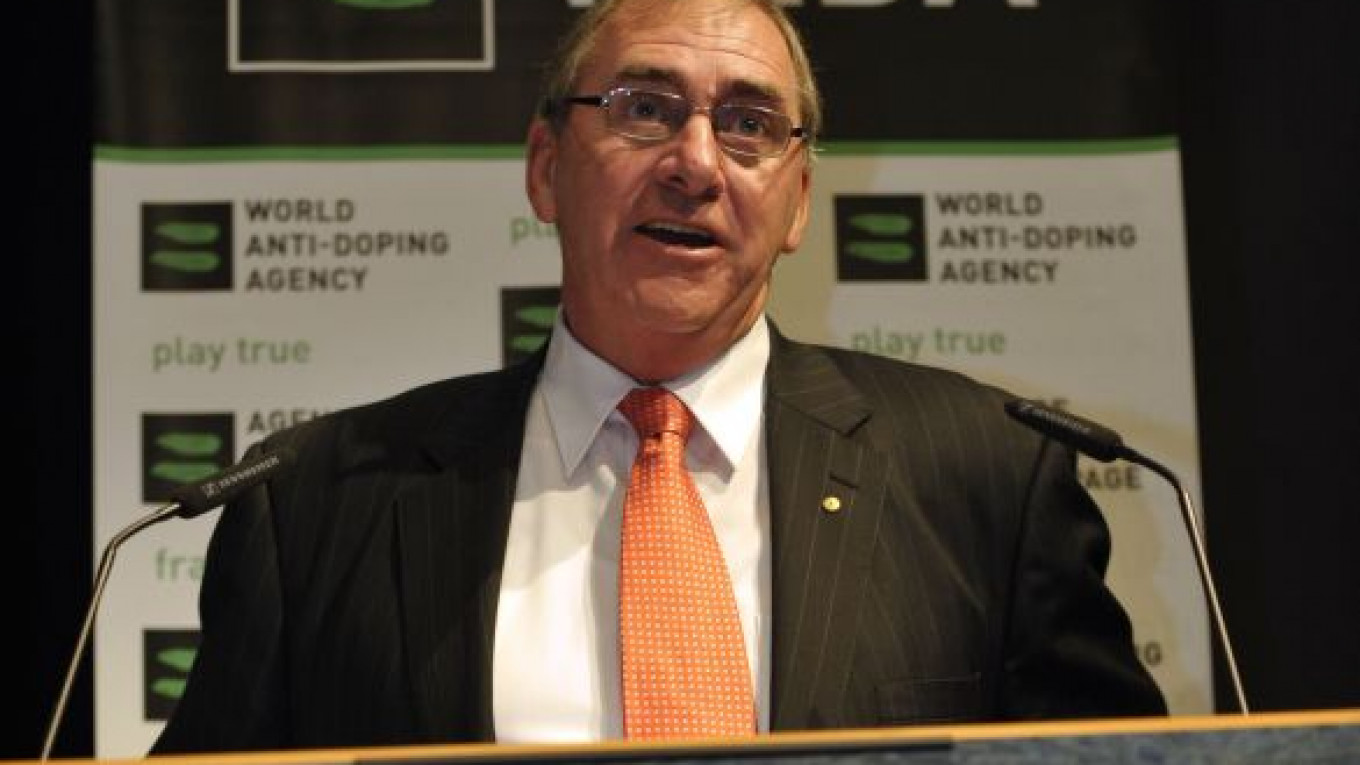Russia's only World Anti-Doping Agency-approved laboratory risks losing its accreditation less than three months before the Sochi Winter Olympics, due to unspecified problems with its operations, WADA President John Fahey said.
The international anti-doping body has set up a disciplinary committee to investigate the laboratory's allegedly dubious practices. If the lab, known as the Moscow Anti-Doping Center, has its accreditation revoked, the center would not be able to complete the 1,269 pre-competition and 2,453 Olympic tests that were planned to take place at its satellite location in Sochi.
Instead, samples would have to be transported to another lab at the cost of Russian Olympics organizers, in what would likely be an embarrassment for the Kremlin and President Vladimir Putin, for whom the Games are an opportunity to show off Russia as a modern and accomplished nation.
WADA head Fahey, speaking on the sidelines of an international anti-doping conference in Johannesburg, said an investigation had been opened into the Moscow laboratory but declined to give any details, The Associated Press reported late Thursday.
The medical commission chairman of the International Olympic Committee, or IOC, Arne Ljungqvist, told the AP that there were issues that jeopardized the lab's credibility.
"We are all aware of the problems, otherwise the disciplinary procedure would not take place," Ljungqvist said.
The IOC, expects to hear the results of the findings within the next few days, Ljungqvist said.
Apparently, not all WADA officials had been informed of the investigation, however.
Dr. Christiane Ayotte, head of the laboratory at WADA headquarters in Montreal, said she was surprised to hear the report of troubles at Russia's anti-doping center.
"I am not at all aware of the situation," Ayotte told The Moscow Times by phone from Johannesburg, where she was also attending the anti-doping conference. "I am shocked to hear [reports] about the Moscow laboratory. It is a nightmare to hear this with just more than two months to go before the Olympics."
"There have been no problems at WADA's Moscow laboratory, as far as I know," she added.
Labs accredited by WADA undergo regular checks to make sure they are attaining the proper results. WADA sends the labs "blind samples," the tests of which are then verified by the international agency.
If a lab is found not to meet WADA's standards, it can have its accreditation removed, as was the case with the facility in Rio de Janeiro that was supposed to test samples at the 2014 World Cup. The samples will need to be sent by FIFA all the way to Lausanne, Switzerland, to be tested.
The director of the Moscow Anti-Doping Center, Dr. Grigory Rodchenkov, who was also in Johannesburg, told Itar-Tass that his laboratory had "not received any official documents from the World Anti-Doping Agency."
"All sorts of different things are being said right now," Rodchenkov said. "Everyone has a lot of opinions right now. And I also have an opinion on this. But let's wait until the end of the conference in Johannesburg."
The World Conference on Doping in Sport, held from Nov. 12 to 15, brought together anti-doping officials from around the world for sessions on the agency's standards and policies.
Rodchenkov's secretary at the Moscow Anti-Doping Center declined to comment on the situation when contacted by phone, redirecting inquiries to the Sports Ministry, which controls the laboratory.
Sports Ministry spokeswoman Lyudmila Derevyanko said when reached by phone that she was unaware of the situation and asked for an e-mailed inquiry. No response was received by Friday evening.
IOC President Thomas Bach said Thursday that the committee will spend $1 million on pre-competition testing at the Sochi Games and "many millions" on testing during the competitions, ensuring that drug-testing in Sochi will be the "most stringent" anti-doping campaign in Olympic history.
The number of planned doping tests in Sochi will be about 14 percent higher than at the 2010 Winter Olympics in Vancouver, where just three doping cases were reported out of the 2,149 drug tests conducted during the Games.
Contact the author at g.tetraultfarber@imedia.ru
A Message from The Moscow Times:
Dear readers,
We are facing unprecedented challenges. Russia's Prosecutor General's Office has designated The Moscow Times as an "undesirable" organization, criminalizing our work and putting our staff at risk of prosecution. This follows our earlier unjust labeling as a "foreign agent."
These actions are direct attempts to silence independent journalism in Russia. The authorities claim our work "discredits the decisions of the Russian leadership." We see things differently: we strive to provide accurate, unbiased reporting on Russia.
We, the journalists of The Moscow Times, refuse to be silenced. But to continue our work, we need your help.
Your support, no matter how small, makes a world of difference. If you can, please support us monthly starting from just $2. It's quick to set up, and every contribution makes a significant impact.
By supporting The Moscow Times, you're defending open, independent journalism in the face of repression. Thank you for standing with us.
Remind me later.






